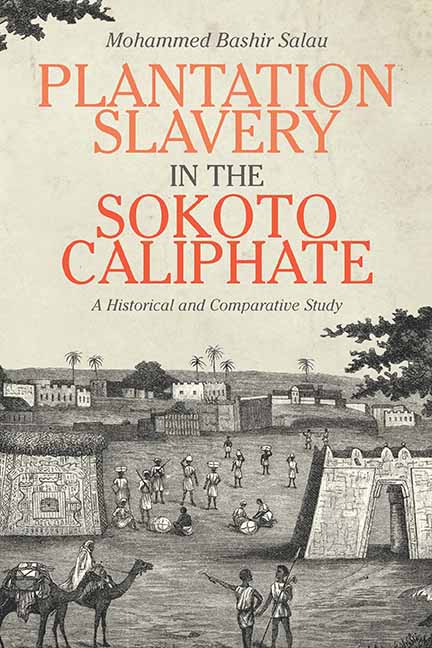Book contents
- Frontmatter
- Contents
- List of Illustrations
- Acknowledgments
- Introduction
- 1 Race and Slavery in the Sokoto Caliphate
- 2 The Roots of Sokoto Caliphate Plantations
- 3 The Course of Plantation Development
- 4 The Types, Structures, and Characteristics of Plantations
- 5 Observations on Slave Origins, Slave Resistance, and Labor Control
- 6 The Significance of Plantations
- 7 Plantations in the New World and in Coastal East Africa Compared
- Conclusion
- Notes
- Bibliography
- Index
3 - The Course of Plantation Development
Published online by Cambridge University Press: 23 July 2019
- Frontmatter
- Contents
- List of Illustrations
- Acknowledgments
- Introduction
- 1 Race and Slavery in the Sokoto Caliphate
- 2 The Roots of Sokoto Caliphate Plantations
- 3 The Course of Plantation Development
- 4 The Types, Structures, and Characteristics of Plantations
- 5 Observations on Slave Origins, Slave Resistance, and Labor Control
- 6 The Significance of Plantations
- 7 Plantations in the New World and in Coastal East Africa Compared
- Conclusion
- Notes
- Bibliography
- Index
Summary
The Sokoto caliphate covered a vast expanse of land that consisted of former Hausa states such as Gobir and Zamfara. Plantations could be found in most if not all of these states, as well as in other parts of the central Sudan, in both the Sudan savanna and Guinea savanna belts, even before the nineteenth-century Sokoto jihad. But the jihad and its aftermath encouraged the rapid expansion of the existing plantation sector, at least in the region that became known as the Sokoto caliphate; without the holy war, plantation expansion probably would not have been as notable.
From the earliest studies of the problem of slavery scholars have tried to explain how slavery, as an institution, developed. Nieboer's explanation linked land abundance to slavery, and he stressed that the use of slaves in societies having abundant land was a means of enhancing agricultural production or economic output in general. Following Nieboer, some scholars have identified demographic conditions of low population-to-land ratios in Africa, and noted that the availability of land that people could fl ee to in order to avoid working for others resulted in efforts to check labor mobility, and ultimately to the reliance on plantation slavery and other forms of coerced labor. Put differently, they, like Nieboer, noted that slavery was exclusively a response to economic incentives associated with land availability. Other scholars argue that land-labor pressures alone cannot explain how slavery and other forms of unfree labor developed. In so doing they stress that the development or cause of slavery in Africa was mainly tied to social or political factors.
Although we do not have data like Austin and other scholars had, to determine whether or not slave labor was cheaper than other forms of labor, clearly land abundance characterized pre-jihad Hausaland, and clearly plantation slavery was in the economic best interest of slaveholders, as chapter 6 of this book will demonstrate. Given these two facts, the present chapter accepts that plantation slavery in the Sokoto caliphate was partly a response to economic incentives associated with land availability. However, it argues that the origin of plantation slavery there was more closely associated with political policy, particularly with Bello's interest in economic and political consolidation, as well as with his interest “with the maintenance of an active front line for defense and annual campaigns.”
- Type
- Chapter
- Information
- Plantation Slavery in the Sokoto CaliphateA Historical and Comparative Study, pp. 58 - 73Publisher: Boydell & BrewerPrint publication year: 2018



